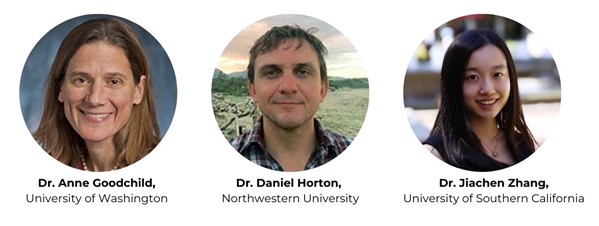
You are here
HEI launches three new studies on effects of emissions-reduction policies for historically marginalized communities
2024
HEI is pleased to announce three new studies funded under RFA 23-2, Assessing Changes in Exposures and Health Outcomes in Historically Marginalized and Environmentally Overburdened Communities from Air Quality Actions, Programs, or Other Interventions. This body of research will provide answers about whether recent air quality actions taken at the state and federal levels equitably improve emissions, air quality, and health for historically marginalized communities potentially affected by the growing goods and freight movement.
- “Managing the Traffic-Related Air Pollution (TRAP) Effects of Urban Warehousing Near Historically Marginalized Communities: A Scenario Analysis of Technology and Land Use Based Strategies,” led by Anne Goodchild, University of Washington
This study will evaluate the distributional health and equity impacts of local intervention policy scenarios within ecommerce-related transport and land use systems for minimizing traffic-related air pollution (TRAP) in Seattle and New York City. A novel, model-based approach will be used to estimate the distribution of ecommerce’s TRAP-related health effects across population subgroups. The model will project future adoption scenarios of low- and zero-emission commercial vehicles and alternative warehousing and distribution center locations and characteristics. - “Efficacy of Vehicle Emission Control Interventions in Ameliorating Air Pollution Exposure and Health Burdens in Marginalized Communities,” led by Daniel Horton, Northwestern University
This study will use observational and numerical modeling research to improve neighborhood-scale characterizations of air pollution exposure, leveraging NASA’s TEMPO data. Investigators will use the air pollution estimates in chemical-transport model simulations to assess the efficacy of transport-focused air pollution remediation policies—including Phase 1 of US EPA’s Clean truck rule, California’s Advanced Clean Trucks regulation, and vehicle omnibus regulation—in reducing exposure and health disparities in Chicago. - “Impacts of Zero-Emission Truck Regulations on Tailpipe and Nontailpipe Air Pollution Exposures and Health Risks in Southern California Communities,” led by Jiachen Zhang, University of Southern California
This study will assess the impact of California's Advanced Clean Trucks and Advanced Clean Fleets regulations on health risks in historically marginalized Southern California communities along freight movement corridors. Investigators will create a high-resolution air pollutant emissions inventory, covering tailpipe diesel PM2.5 and NOX and nontailpipe brake and tire wear PM2.5 and PM10 emitted from trucks. They will then estimate changes in air pollution concentrations, associated changes in mortality and morbidity, and monetized health benefits.

